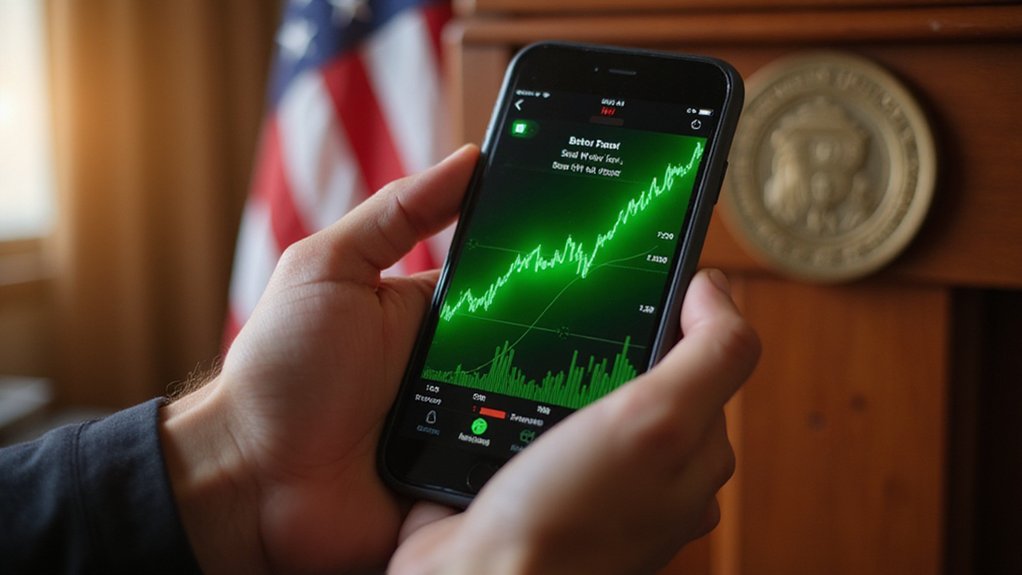While traditional billionaires once accumulated their fortunes through oil, real estate, or manufacturing empires that took decades to build, a new breed of financial titans has emerged from the digital ether, amassing wealth at speeds that would make even the most aggressive venture capitalist’s head spin.
Leading this cryptocurrency aristocracy stands Changpeng “CZ” Zhao, whose $65.2 billion fortune through Binance positions him as the undisputed emperor of digital asset exchanges. His wealth, primarily denominated in Binance Coin (BNB), demonstrates how controlling the infrastructure of speculation can prove more lucrative than the speculation itself—a lesson as old as selling shovels during gold rushes, though considerably more volatile.
Controlling the infrastructure of speculation proves more lucrative than the speculation itself—a digital age shovel-selling strategy.
Chris Larsen’s fluctuating $4-8 billion valuation through his 5.2 billion XRP holdings illustrates the peculiar nature of crypto wealth, where fortunes can swing by billions based on regulatory tweets or market sentiment. Similarly, Giancarlo Devasini‘s $12 billion stake in Tether reflects the curious irony that one of crypto’s largest fortunes derives from a stablecoin designed specifically not to fluctuate wildly.
The Ethereum ecosystem has minted its own billionaires, with co-founder Joseph Lubin‘s ConsenSys venture contributing to his estimated $1-5 billion net worth, while Jed McCaleb‘s $2.9 billion fortune spans multiple blockchain projects, proving that early adoption combined with serial entrepreneurship creates enduring wealth even in this nascent sector. The approval of spot Bitcoin ETFs has fundamentally altered market dynamics by channeling institutional capital directly into cryptocurrency markets. BlackRock’s IBIT has demonstrated unprecedented momentum with 19 consecutive days of inflows, showcasing the growing institutional appetite for regulated Bitcoin exposure.
Traditional billionaires haven’t ignored this digital gold rush. Mark Cuban and Jack Dorsey (who audaciously predicts Bitcoin reaching $1 million by 2030) have pivoted substantial portions of their portfolios toward cryptocurrency, while hedge fund titans like Israel Englander now hold significant Bitcoin ETF positions. MicroStrategy’s Michael Saylor exemplifies this institutional embrace, with his company controlling over 1% of all Bitcoin globally while predicting the cryptocurrency could reach $13 million by 2045.
Over 600 investment firms currently maintain sizable Bitcoin ETF assets, suggesting institutional capitulation to crypto’s gravitational pull.
Forbes documented this wealth explosion, with crypto billionaires nearly doubling from nine in 2023 to seventeen in 2024, driven by market resurgence and DeFi innovation. Even political figures like Donald Trump have entered the fray through NFT collections and $TRUMP tokens, though whether this represents genuine conviction or opportunistic positioning remains diplomatically unclear.
Market volatility continues threatening these digital fortunes, yet the transformative power of cryptocurrency wealth extends beyond individual portfolios, fundamentally reshaping global financial architecture.








